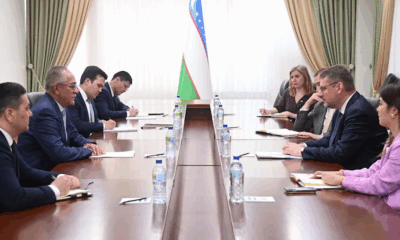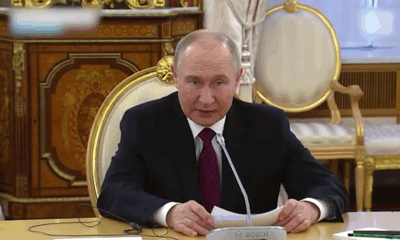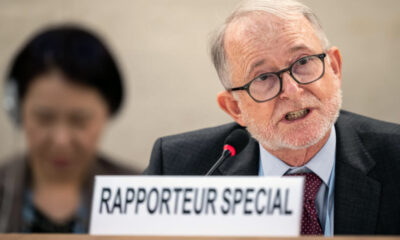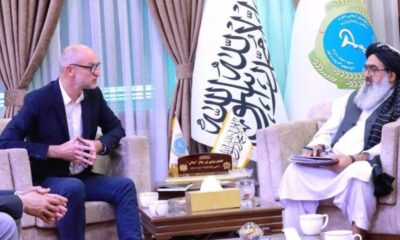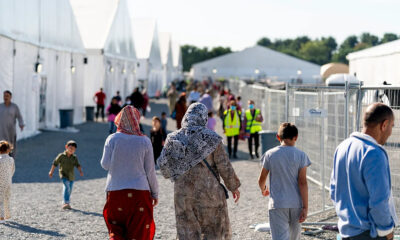Health
Health ministry marks Global Handwashing Day in Kabul
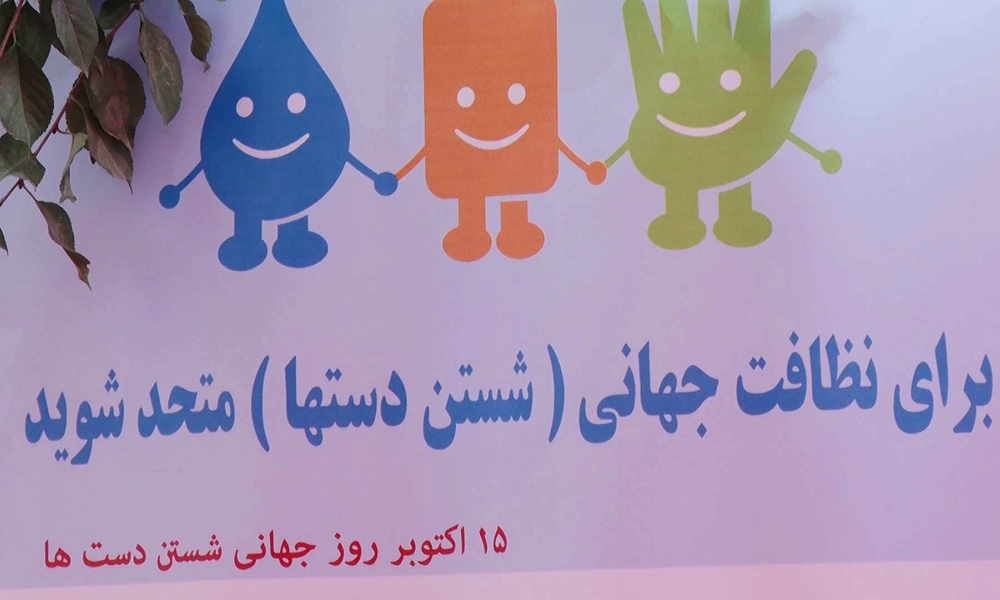
The Ministry of Public Health (MoPH) says washing hands with soap and water can prevent the spread of deadly and dangerous diseases, especially among children.
Marking Global Handwashing Day in Kabul on Sunday, the health ministry said that more than 3.5 million children suffered from diarrhea in 1401 solar year and nearly 2.5 million others were diagnosed with pneumonia.
Health officials said that one of the main factors is the non-observance of hygiene.
“According to public health statistics, more than 3.5 million children suffered from diarrhea in 1401 and nearly 2.5 million children suffered from pneumonia,” said Babrak Zakhmi, a representative of the health ministry.
Meanwhile, the officials of the Ministry of Education, Rehabilitation and Rural Development emphasized that the people should be educated on the importance of washing hands by religious scholars, school teachers and madrassas across the country, especially in remote areas.
Simultaneously, a nationwide deworming campaign also started on Sunday in schools across the country, officials said.
Health officials stated that the campaign will last for 10 days and students from the first to the twelfth grade will be dewormed.
Health
Head of MSF in Afghanistan meets with Jalali over improving healthcare services
Michael Lippi committed to making efforts aimed at improving the quality of healthcare services and fostering better coordination.
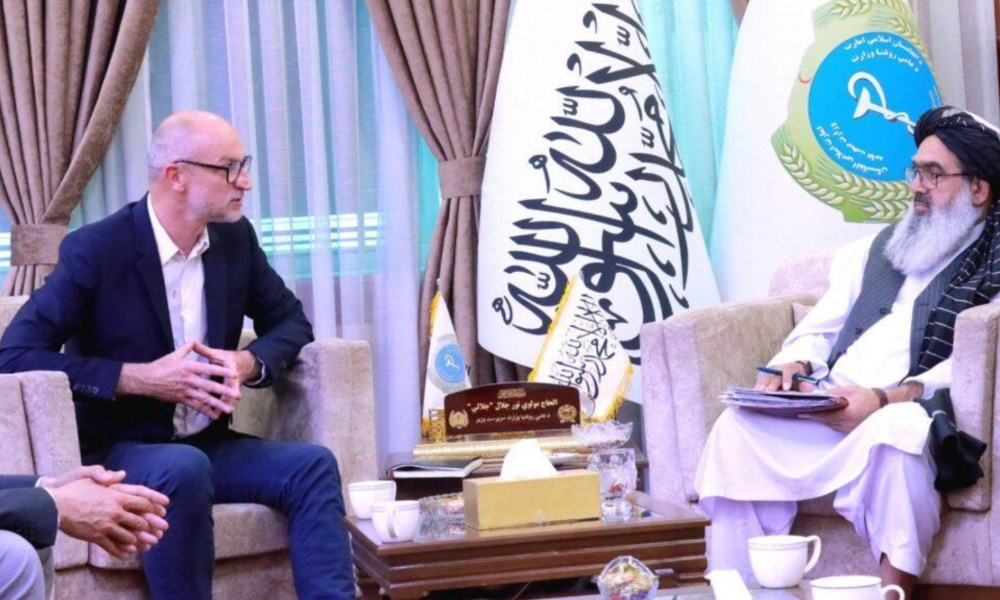
Afghanistan’s Acting Minister of Health Noorjilal Jalali met with the head of Medecins Sans Frontieres (MSF) for Afghanistan, Michael Lippi, for discussions on improving healthcare centers and medical services in the country.
The two officials also discussed enhancing the capacity of healthcare workers, ensuring transparency in services, improving coordination with the Ministry of Public Health, and delivering effective and sustainable healthcare services.
Jalali emphasized the importance of increasing and expanding the organization’s support for the health sector and called for further development of services.
He stressed the need to enhance the capacity, quality, effectiveness, and transparency of healthcare workers.
Michael Lippi also emphasized the need for further improvements in health services in Afghanistan and the expansion of this sector.
He committed to efforts aimed at improving the quality of healthcare services and fostering better coordination. He specifically addressed the continuation of services in the provinces of Herat, Kunduz, and Helmand, confirming that these centers will continue their operations in collaboration with the Ministry of Public Health.
Meanwhile, Mohammad Naeem, the Deputy Minister for Finance and Administration at the Ministry of Foreign Affairs of the Interim Government, held a separate meeting with
Michael Lippi to discuss the expansion of healthcare services and the provision of necessary facilities for returning migrants.
According to the Ministry of Foreign Affairs, Lippi reassured government that MSF’s efforts to improve maternal and child health and enhance the capacity of healthcare personnel will continue.
Health
Japanese charity Peshawar-Kai to resume leprosy treatment in Afghanistan
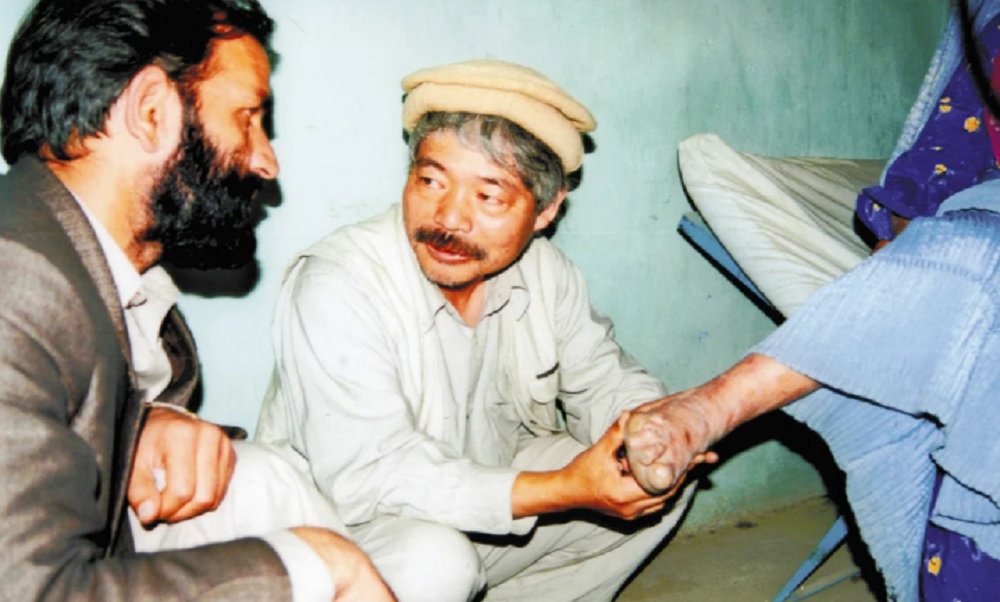
Peshawar-Kai, a Japanese aid organization, has announced that it will resume leprosy treatment in Afghanistan after around 15 years.
The charity will treat leprosy patients in memory of its former head Tetsu Nakamura, Japan’s Yomiuri Shimbun newspaper reported.
The NGO will begin its leprosy treatment program in Afghanistan this year.
It will treat patients in areas such as Nangarhar province by providing medicines, training staff and sending mobile treatment teams.
Leprosy, also known as Hansen disease, is a chronic infectious disease caused mainly by a type of bacteria called Mycobacterium leprae. The disease affects the skin, the peripheral nerves, the mucosa of the upper respiratory tract and the eyes.
Nakamura started treated leprosy patients in Pakistan in the 1980s and then began extensive activities, including the construction of water supply canals in Afghanistan.
The Japanese aid worker was killed in an armed attack in Jalalabad in December 2019.
Health
WHO confirms second Polio case in Afghanistan
The Islamic Emirate of Afghanistan’s Public Health Ministry has not yet commented.
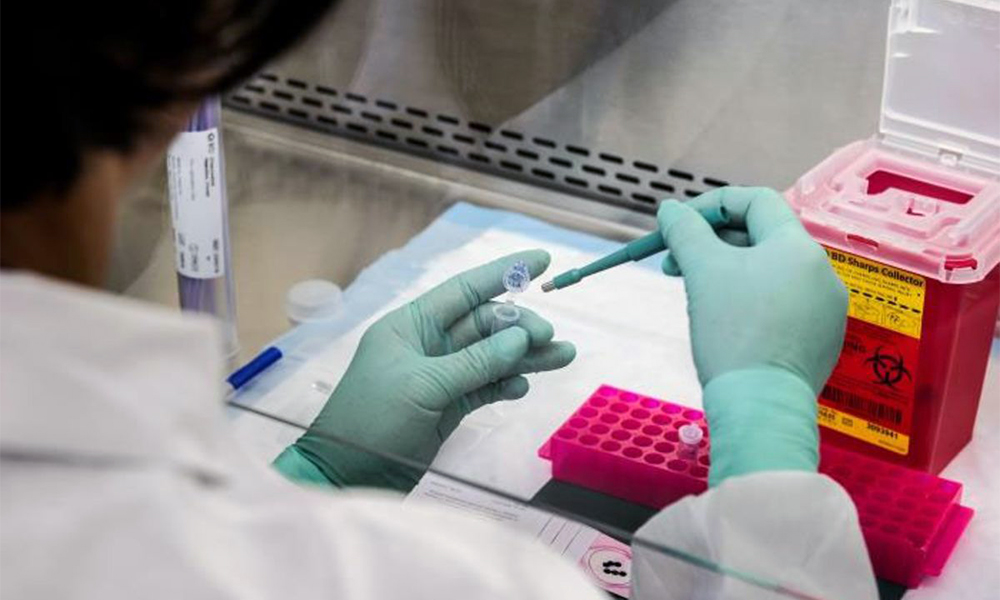
The World Health Organization (WHO) has confirmed the second case of polio in Afghanistan for the year 2025.
The case was identified in March in Helmand province.
This follows the first reported case in the Bala Murghab district of Badghis province, where a five-year-old girl was diagnosed with the virus.
Additionally, 18 environmental samples testing positive for the polio virus have been reported in provinces including Kandahar, Helmand, Kabul, Laghman, Nangarhar, and Zabul.
Afghanistan and Pakistan remain the only countries where polio has not been eradicated.
Polio is a viral disease for which there is no cure, and vaccination is the only way to protect children from it.
The Islamic Emirate of Afghanistan’s Public Health Ministry has not yet commented.
-

 Regional5 days ago
Regional5 days agoIndia says military stations attacked by Pakistan drones and missiles
-
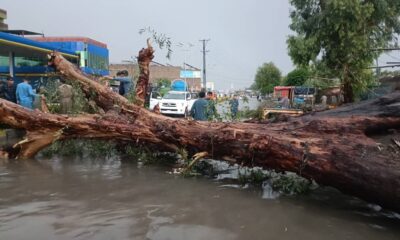
 Latest News5 days ago
Latest News5 days agoOne dead, dozens injured as powerful storm strikes Jalalabad, Afghanistan
-

 Latest News4 days ago
Latest News4 days agoEx-Afghan deputy speaker Qadeer back in Kenyan court for criminal case
-
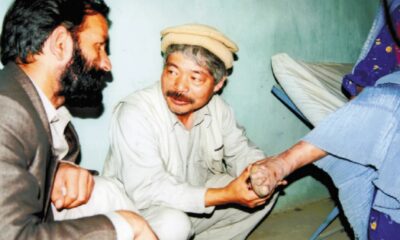
 Health5 days ago
Health5 days agoJapanese charity Peshawar-Kai to resume leprosy treatment in Afghanistan
-

 Sport5 days ago
Sport5 days agoIndia suspends Indian Premier League T20 cricket tournament
-

 Latest News4 days ago
Latest News4 days agoPakistan says India launched attack on Afghanistan, India denies
-

 Latest News4 days ago
Latest News4 days agoMCC Chief: Afghan cadres sent to China for AI training
-

 World3 days ago
World3 days agoUS offers to help India and Pakistan start talks, G7 also urges dialogue


